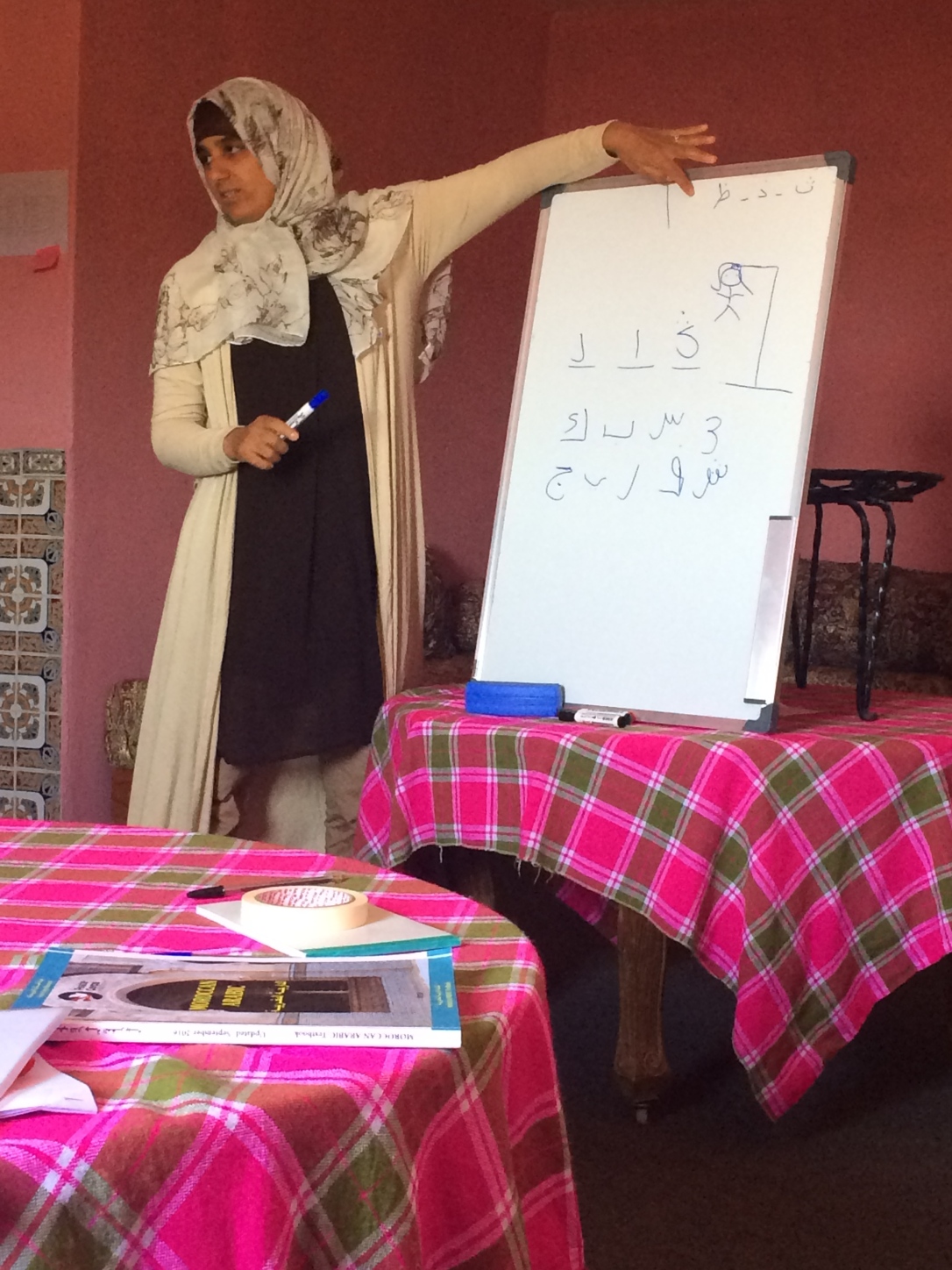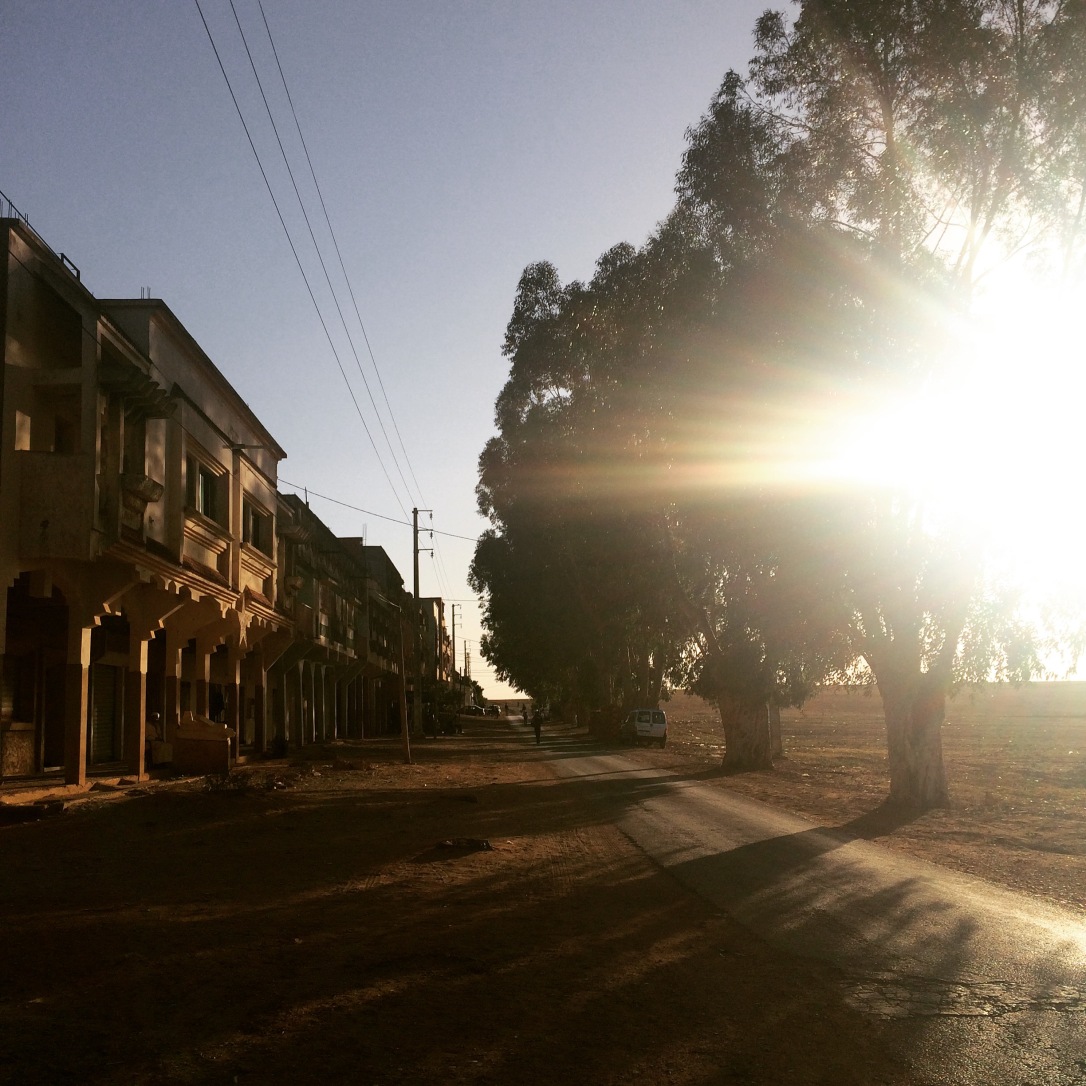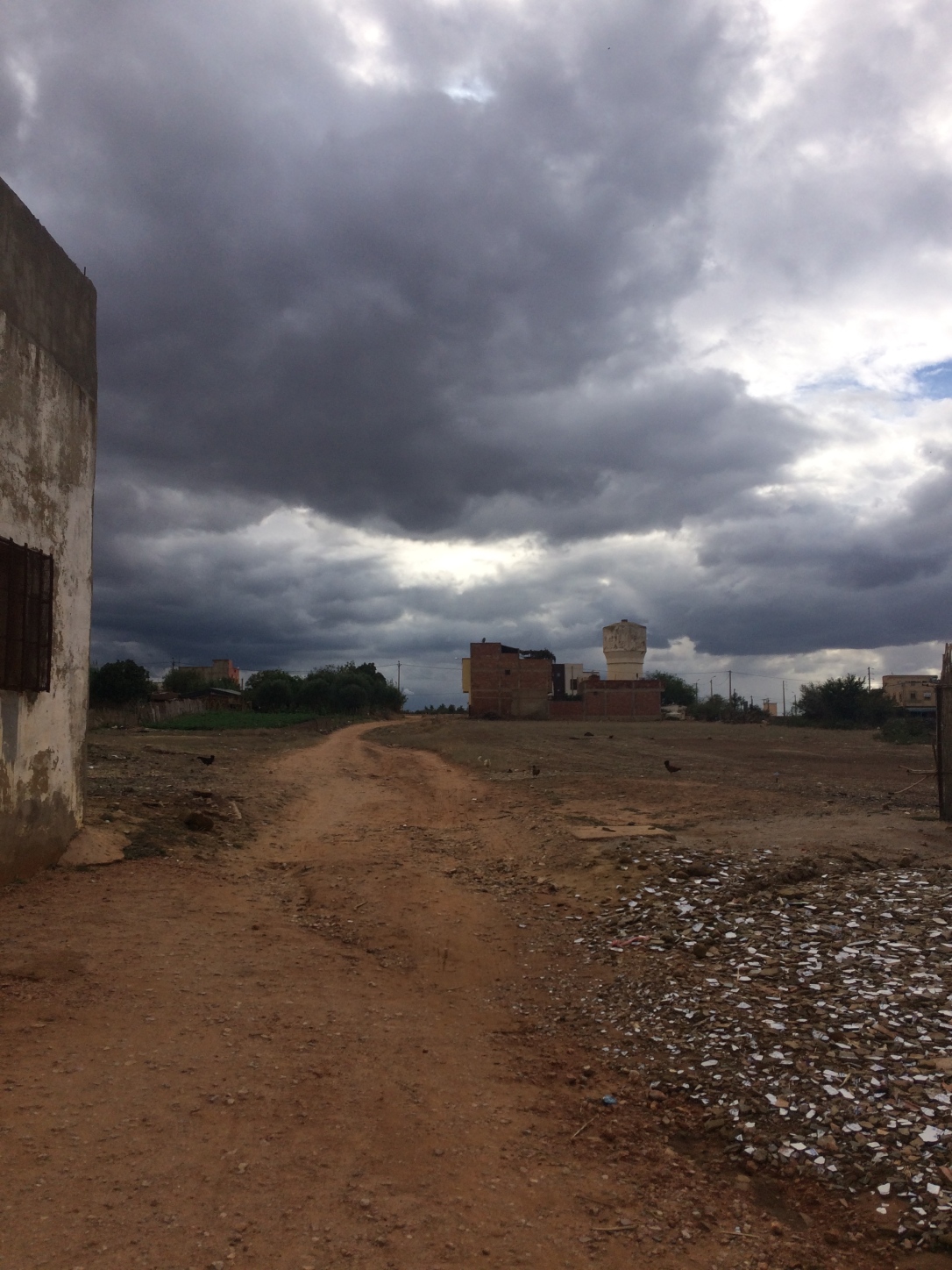I guess it is time that I write for you about my training site and family.
Peace Corps Morocco divides its PCTs (Peace Corps Trainees) into small groups of six for a period of training called CBT (Cultural-Based Training), also called PST (Pre-Service Training) for a period of about two and a half months. Each group is then assigned a CBT site that can range anywhere from a semi-urban neighborhood, a small farming town, a mountain village, etc. An LCF (Language and Culture Facilitator) is assigned to each CBT group, and they act in a professional capacity as a Darija (Moroccan Arabic Dialect) teacher, a cultural tutor, and a liaison between trainees, the local authorities in the CBT site, and other Peace Corps staff. In an unofficial capacity, LCFs can also act (and almost always do) as a sounding board for ambitious ideas, a counselor that can offer assistance in the integration process, and as a translator in dire misunderstandings (can you tell yet that I love my LCF?). Each PCT is placed in their site with their own family. Some families are big, some are small, some are rich, some are strapped for cash, some are religious, others not so much, etc. As you can probably already gather from my description, each trainee’s experience will differ significantly from the next. Even within CBT groups, there are a variety of different experiences and feelings regarding Pre-Service Training. My CBT experience has had its ups and downs, but I have really appreciated and come to love my site and family.

My site is a small farming town with a population of less than 2,000 located about 30 minutes outside of Meknes. It is a conservative town with a wide variety of ideas and practices. Some families are Arab and some are Amazigh. The town is warm in the summer and moderately cold in the winter. I say moderately cold, but what I mean is it gets down into the 20s and 30s and there is no internal heating. Moroccans are experts, however, at enduring bone-chilling winters without heat. I have learned a trick or two from them.





I do have running water (no hot water) and electricity (unreliable as it is), which, compared to other Peace Corps countries, automatically labels Morocco as a “Posh Corps” country.

My family consists of a young Amazigh couple (my host mom and dad), their two sons (6 and 3 years old), and the husband’s parents, my host grandparents. I truly love them. The grandparents are from the Rif region up north, near Nador, and they speak a dialect of Tamazight called Terefit. Their children were born and raised in the town itself, while my host mom was born in the mountains around the town. She speaks a dialect of Tamazight closer to that which is spoken in my final site and has been very excited to share her first language with me now that I know I will have to learn that in addition to Darija. She got married at 16 and never learned how to read, but she has been working on her alphabet recently and has started to be able to recognize words. My host dad encourages her in this endeavors, which is really great to see. The little boys can be a handful, but I have enjoyed being “sister.” My grandma is great too—she’s an absolute coffee fiend and loves to make it for our class. Turns out, her father was a Sufi holy man whose teachings were highly regarded and who committed much of his time and many of possessions to the poor. Through her side, my family can trace its lineage back to the Muslim prophet Muhammad. The family is incredibly hospitable, and not just to me. They have adopted my LCF as if she was a member of the family and it’s not unusual for them to ambush my CBT mates and force a meal upon them.
As far as gender roles go, the town is a conservative town, and most women stay at home. I am fortunate to be in a wonderful family where women are valued and cherished. My host mom and her sister-in-law go to the souk (weekly market) every week and buy food for their households. My host grandfather is very actively involved in the boys’ lives, walking them to school and assisting in discipline. My host dad is great with his kids and will sometimes make dinner (a very unusual thing in Morocco). He actually stopped me from washing the dishes yesterday because he wanted to do them himself!
Due to my previous experience with Arabic, I was placed in an advanced CBT group. While we certainly have learned quickly and feel we have accomplished a lot (conducting an employability workshop entirely in Arabic, teaching English classes, etc.), we know there is a long way to go and that in the Peace Corps, you never stop learning.

In less than two weeks, I move onto my final, permanent site. While I am ready to begin my service as a PCV, I am will be sad to leave this little town. It has taught me a lot, and I truly do love my family. I’ll miss my CBT group as well. We will all be scattered across the country, and it truly is a bonding experience.


Keep up the good work Kelly. Very impressed and proud of you. 😀 Keep the blog posts coming too as you are able.